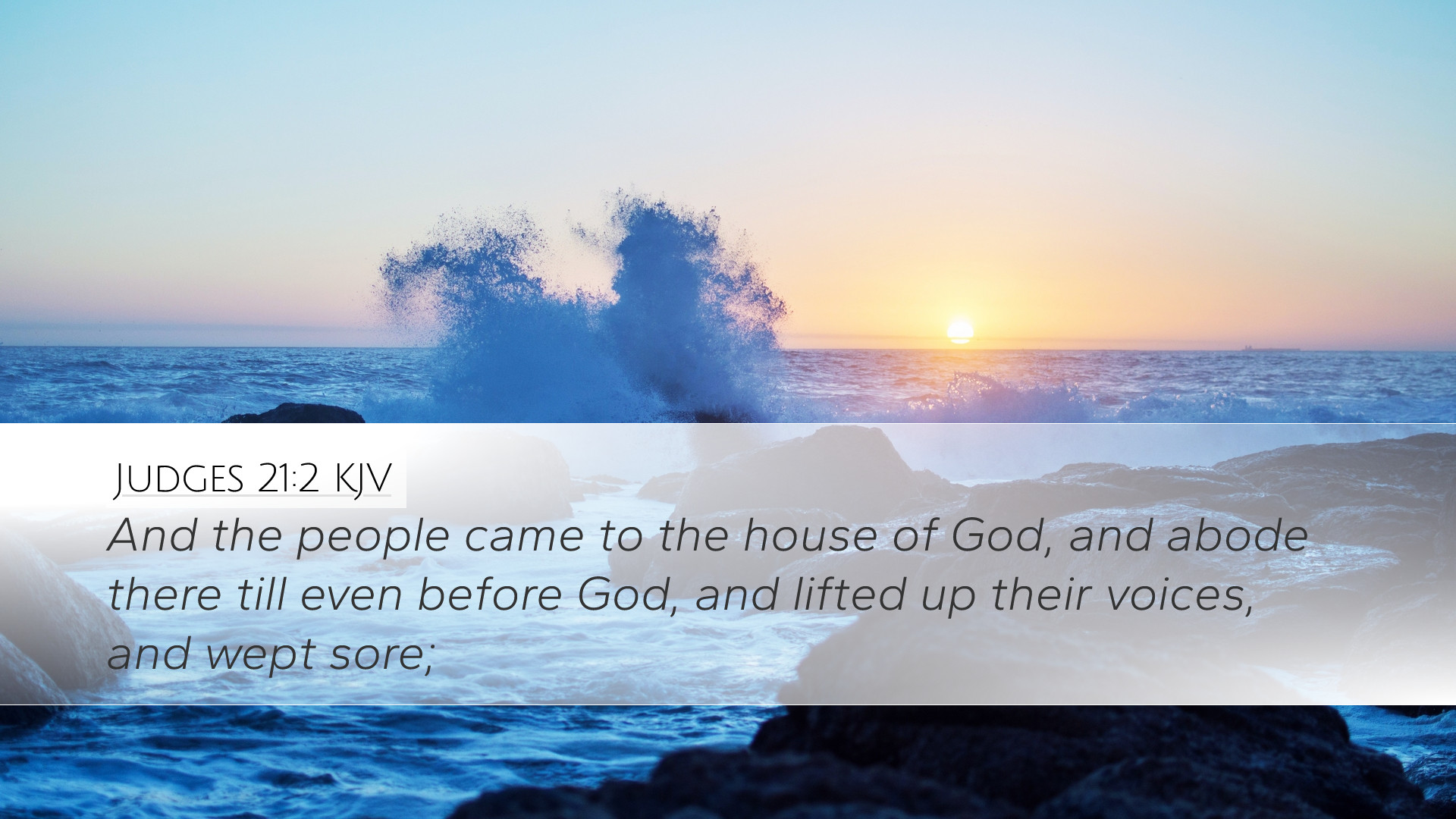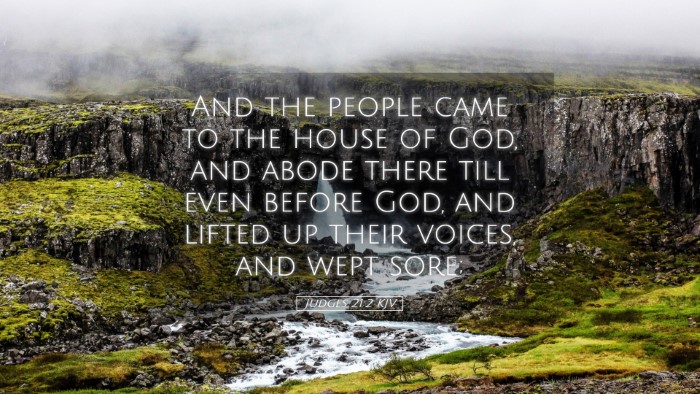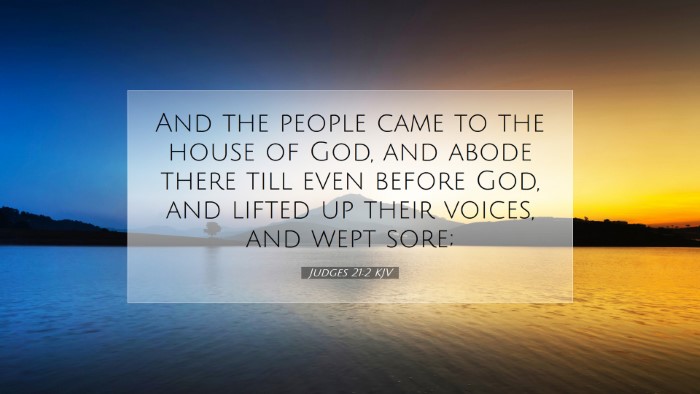Commentary on Judges 21:2
Text of Judges 21:2: "And the people came to the house of God, and abode there till even before God, and lifted up their voices, and wept sore."
1. Contextual Background
The book of Judges narrates a tumultuous period in Israel's history, marked by cycles of sin, punishment, repentance, and deliverance. Chapter 21 concludes this narrative, focusing on the ramifications of the civil strife and the near annihilation of the tribe of Benjamin. Following a devastating conflict, the Israelites are portrayed in a state of emotional turmoil and desperation.
2. Examination of Key Themes
2.1 The Mourning of Israel
The emotional state of the Israelites is poignantly expressed in this verse. The act of weeping before God reflects deep sorrow and regret not only for the loss of life but also for the implications of their actions that led to such devastation. Matthew Henry notes that they came to seek the Lord’s guidance and comfort, illustrating an essential aspect of returning to God: recognizing human frailty and the need for divine intervention.
2.2 The Place of Worship
According to Albert Barnes, the term "the house of God" signifies a sacred space, likely referring to Shiloh, where the tabernacle was located. In times of distress, turning to such a holy place is essential for the restoration of one’s spiritual condition. The importance of communal worship and seeking God collectively in moments of crisis is emphasized here, aligning well with the biblical principle of fellowship.
2.3 The Attitude of Prayer
The posture of the Israelites—lifting up their voices in prayer—illustrates a fundamental attitude of dependence on God. Adam Clarke highlights the significance of vocal prayer; it serves as both a cry for help and an acknowledgment of God's sovereignty. The earnestness of their supplication indicates a heartfelt desire for resolution and reconciliation, critical themes throughout the overarching narrative of Judges.
3. Theological Implications
3.1 The Nature of Repentance
Theirs is not a superficial sorrow; it is a profound expression of repentance. The anguish displayed serves to fulfill the Scriptures that call believers to genuine contrition. Matthew Henry notes that true repentance is evidenced by one’s desire to rectify past mistakes and seek restoration in relationships both vertically (with God) and horizontally (with others).
3.2 The Role of Community in Seeking God
This verse highlights the strength found in community worship. The collective weeping signifies shared grief and mutual acknowledgment of sin. Albert Barnes notes that corporate penitence is essential for collective healing, reinforcing that personal reconciliation with God often necessitates communal acknowledgment of wrongdoing.
3.3 God’s Faithfulness Amidst Judgment
Despite their failures, the Israelites' act of gathering at the house of God signals hope for God’s compassionate response. Even amidst judgment, God desires a return to fellowship. Adam Clarke emphasizes that God's mercy is ever-present for those who approach Him with a contrite spirit. The bridge between human failure and divine grace is a recurring theme throughout the Scriptures.
4. Practical Applications
4.1 Importance of Seeking God in Crisis
Pastors and leaders are reminded of the vital practice of directing congregations towards God during times of turmoil. This verse serves as a profound reminder that God's house is a refuge during distress and a place for healing.
4.2 Encouraging Authentic Worship
The Israelites' raw emotional appeal suggests that authenticity in worship is essential. Churches today should cultivate environments where congregants feel free to express their emotions before God, aligning with the biblical precedent set in this verse.
4.3 The Role of Intercessory Prayer
Judges 21:2 serves as a call for intercessory prayer within the church. As the community gathers in prayer, it opens avenues for healing not only for the individual but for the community as a whole. The act of weeping together before God fosters unity and collective responsibility.
5. Conclusion
Judges 21:2 illustrates a gripping scene of sorrow, repentance, and a longing for restoration. It provides a profound insight into the human condition—our frailty, the need for community, and the imperative of seeking God amid distress. By reflecting on this passage and the insights gleaned from esteemed commentators, we are encouraged to embrace genuine repentance, pursue communal worship, and uphold the faith that God remains faithful, even when judgment is warranted. Let us take these lessons to heart and faithfully apply them in our walk with God, fostering a community that is eager to seek His face in both joy and sorrow.


